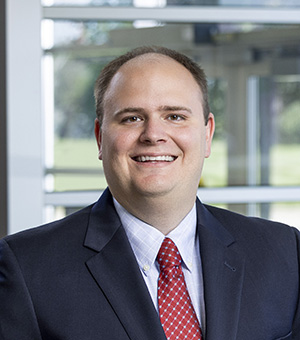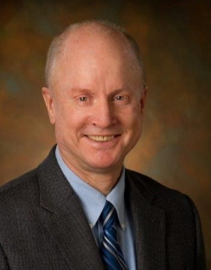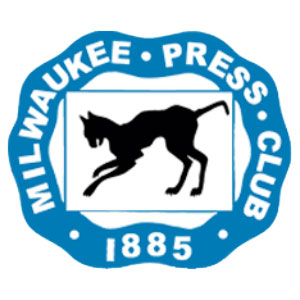Know Your Legal Rights is a bi-monthly column distributed by the State Bar of Wisconsin. It is written by members of the State Bar of Wisconsin’s Lawyer Referral and Information Service (LRIS), which connects Wisconsin residents with lawyers throughout the state. To find an attorney in your area, visit wislaw.org.

By Jon Fischer and Ben Adams
In a 1789 letter to French physicist Jean-Baptiste Le Roy, Benjamin Franklin stated, “In this world, nothing can be said to be certain, except death and taxes.”
That is why every year on the day after Tax Day, we celebrate National Healthcare Decisions Day (NHDD).
NHDD is held on April 16 each year and is organized by The Conversation Project, a program of the Institute for Healthcare Improvement. HDD exists to inspire, educate, and empower the public and healthcare providers about the importance of Advance Care Planning.
Gov. Tony Evers, at the request of the State Bar of Wisconsin and the Wisconsin Medical Society, has declared April 14-20 to be Healthcare Decisions Week (HDW-WI) in Wisconsin.

NHDD and HDW-WI are initiatives to encourage all adults 18 and older to express their wishes regarding healthcare by developing an advance care plan and completing a legal document for medical providers and healthcare facilities to respect those wishes, whatever they may be.
Attorneys play a key role in educating clients about the importance of having an advance directive (frequently called a health care power of attorney). The Conversation Project advocates that each of us take just a few steps in making our choices known:
Reflect on Your Choices
- Plan ahead: None of us can predict the future. But we can make sure that someone is capable of advocating for us if we are suddenly unable to advocate for ourselves due to accident or illness. Nearly half of all people over age 65 who are admitted to the hospital will need help from someone else.
- Consider organ donation preferences: Do you want to be an organ or tissue donor at your death? Wisconsin’s donor information can be found here dhs.wisconsin.gov/donatelife/index.htm
- Select trusted advocates: Choose someone over age 18 to be your healthcare agent and to make choices if you are not able to. Then, pick at least one backup who would be able to act if your primary agent is unable or unwilling. Make sure that your agent will follow your wishes and is capable of evaluating information in changing circumstances if there is an emergency.
Discuss Your Preferences
- Tell your agent and your family about your choices. Inform them that they would be the person to make a medical decision and be your advocate if you are unable to speak for yourself. Ask if it is a role they are comfortable taking on.
- Talk about what matters to you. Do you have certain religious or cultural beliefs that they need to be aware of. Make sure that they all understand and will follow your beliefs. Then, listen to their answers. Discuss any questions they might have.
Don’t Be Surprised
- Understand the law: Wisconsin law does not allow family members to make medical decisions for others over 18 years of age in their family unless specific legal authority is granted. This means that your spouse of 30 years and your college-age adult children who are still your dependents cannot make medical decisions for you unless you clearly outline your wishes in a legal document. Likewise, you cannot make decisions for them. There are no exceptions.
Wisconsin’s health care power of attorney law states that any individual “of sound mind” and over age 18 can execute a health care power of attorney document. This law requires that the document be signed in the presence of two adult witnesses who are not related to the person completing the form.
- Safeguard your document for emergency access: After completing a healthcare power of attorney, make sure to file it with your healthcare system so that they are aware of its existence and can reference the document in an emergency. Give a copy to each of your agents, and perhaps to other family members or close friends.
Maintain Ongoing Conversations
- Adapt your plan as life evolves. Your healthcare desires at age 25 or 50 are almost certainly different than your desires at age 85. Make sure to keep talking with your agents as your health changes. It’s good to have new conversations around major life events, such as a new baby, a medical diagnosis, a marriage, or a new decade of life.
Get Your Free Healthcare Decisions Guide
To recognize Healthcare Decisions Week in Wisconsin, the State Bar of Wisconsin is making available for free, by download, “A Gift to Your Family: Planning Ahead for Future Health Needs” between April 10-24, 2024. Visit wisbar.org/healthcare for your copy.
This consumer guide uses plain language to explain legal issues surrounding end-of-life decisions such as Power of Attorney for Healthcare, living wills, and organ and tissue donation. It also includes Wisconsin state forms for Power of Attorney for Healthcare and Declaration to Physicians (Living Will).
Jon Fischer of McCarty Law LLP in Appleton specializes in elder law, estate planning, wills and trusts, probate law and estate settlement.
Ben Adams is retired from active law practice with McCarty Law LLP and spent more than 30 years practicing with Adams & Woodrow, S.C. in Neenah. He specialized in elder law, special needs planning, guardianships, nursing home and long-term care issues, advance health care decision making and estate planning.
To find an attorney near you, visit wislaw.org.



